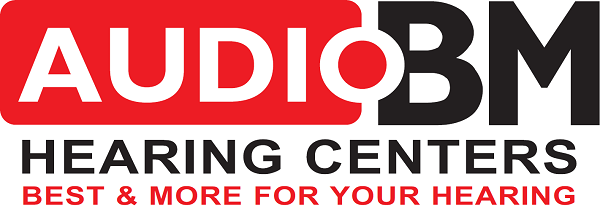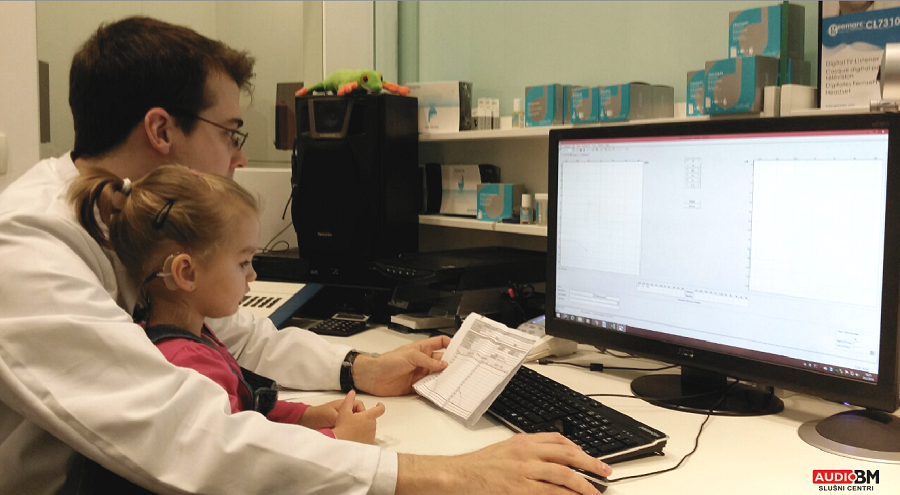HOW DOES YOUR CHILD HEAR
Sometimes parents find themselves in a situation when they cant really be sure about their childs hearing. We all know kids tend to ignore us from time to time, but what if there actually is a problem there? How would you know? If you feel like the problems became more obvious and need to be a evaluated by the doctor look no further.
American speech-language-hearing association released a list of skills a child should be able to complete for couple of age groups. Follow the list for the age group your child belongs to and answer with a YES or NO. Any negative answers are the missed out skills that could be mentioned to the childs doctor so the evaluation of problem can be done easier. Allthough keep in mind that some tasks might be reachable at the upper age limit.
—————————
Age 0 – 3 months
Reacts to loud noises.
Calms down or smiles when spoken to.
Recognizes your voice and calms down if crying.
When feeding starts or stopes sucking in response to sound.
Coos and makes pleasure sounds.
Has a special way of crying for different needs.
Smiles when he or she sees you.
Age 4 – 6 months
Follows sounds with eyes.
Responds to changes in the tone of your voice.
Notices toys make sounds.
Pays attention to music.
Babbles in a speech-like way and uses many different sounds, including those that begin with p, b, and m.
Laughs.
Babbles when excited or unhappy.
Makes gurgling sounds when alone or playing with you.
Ages 7 months – 1 yeah
Enjoys playing peek-a-boo and pat-a-cake.
Turns and looks in the direction of sounds.
Listens when spoken to.
Understand words for common items such as »cup«, »shoe« or »juice«.
Responds to requests (»come here«).
Babbles to get and keep attention.
Communicates using gestures such as waving or holding up arms.
Imitates different speech sounds.
Has one or two words (»hi«, »dog«, »mama« or »dada«) by first birthday.
Age 1 – 2 years
Knows a few parts of the body and can point to them when asked.
Follows simple commands (»roll the ball«) and understands simple questions (»where is your shoe?«).
Enjoys simple stories, songs and rhymes.
Points to pictures, when names, in books.
Acquires new words on a regular basis.
Uses some one- or two-word questions (»Where kitty?« or »go bye-bye?«).
Puts two words together (»more cookie«).
Uses many different consonant sounds at the begining of words.
Age 2 – 3 years
Has a word for almost everything.
Uses two- or three-word phrases to talk about and ask for things.
Uses k, g, f, t, d and n sounds.
Speaks in a way that is understood by family and friends.
Names objects to ask for them or to direct attention to them.
Age 3 – 4 years
Hears you when you call from another room.
Hears the television or radio at the same sound level as other family members.
Answers simple »who?« »what?« »where?« and »why?« questions.
Talks about activities at daycare, preschool or friends homes.
Uses sentences with four or more words.
Speaks easily without having to repeat syllables or words.
Age 4-5 years
Pays attention to a short story and answers simple questions about it.
Hears and understands most of what is said at home and in school.
Uses sentences that give many details.
Tells stories that stay on topic.
Communicates easily with other children and adults.
Says most sounds correctedly except for a few (l, s, v, r, z, ch, sh, th).
Uses rhyming words.
Names some letters and numbers.
Uses adult grammar.
—————————
Keep in mind that even if you checked some with a »no« it does not mean that your child is having some sort of hearing loss. This list will only help your doctor to understand the scale of the problem that you have noticed. If your pedietrician agrees with a possible hearing loss and if it happens to be confirmed by a specialist call one of AUDIO BM hearing centers, our acousticians have a lot of experiences with children and hearing loss, some of us also attended special pediatric hearing loss educational courses and we will be glad to help you and your child when you will need it the most.


